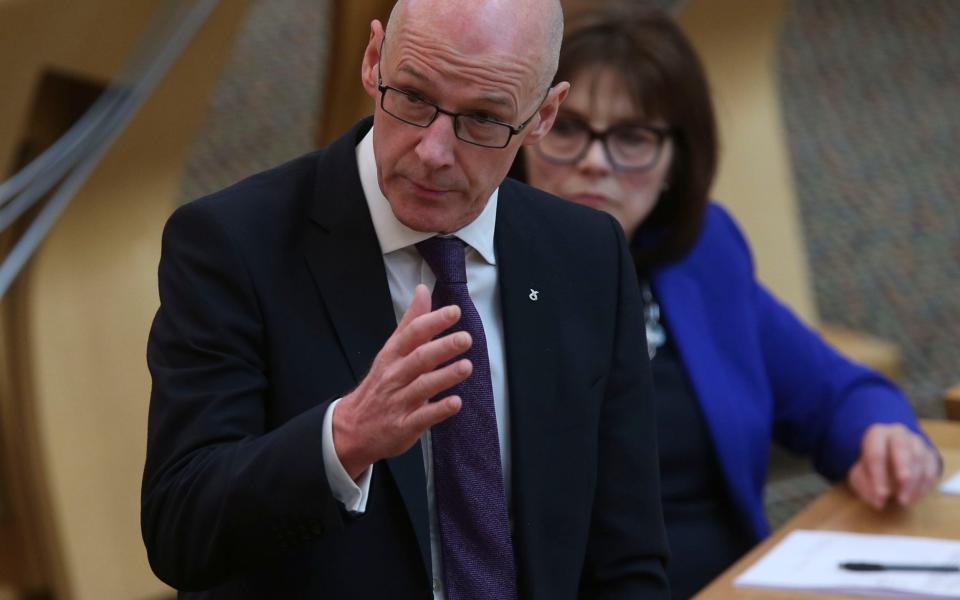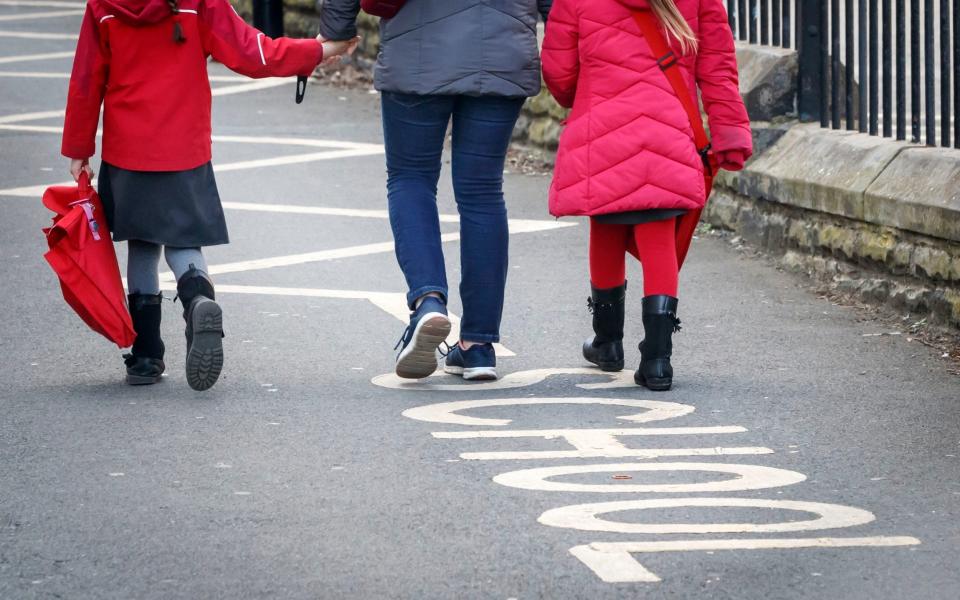John Swinney cancels collection of key literacy and numeracy figures in Scotland's schools

John Swinney has cancelled the collection of key figures this year showing whether school pupils are meeting the expected benchmarks for reading, writing and numeracy.
The Deputy First Minister wrote to directors of education at Scotland's 32 local authorities stating he had decided to suspend gathering the information during the pandemic.
He argued he could not be sure the figures would be "comparable with previous years" and trying to assess pupils would "add considerably to the other pressures on school and education staff."
The Education Minister expressed confidence that "teachers will continue to assess the progress that children and young people are making whilst learning at home, and report that progress back to parents."
But the Scottish Tories said there was "no justification" for suspending the monitoring of educational attainment for the entire year, especially as children are not at school.
.@JohnSwinney and @EISUnion Larry Flanagan have spoken at @istp2020 about Scotland's strong relationship with teaching unions and the ongoing work of the Education Recovery Group to safely re-open schools. #ISTP2020 pic.twitter.com/8OwjbrCieZ
— ScotGov Education (@ScotGovEdu) June 2, 2020
His decision came amid mounting concern that the closure of schools, which will not partially reopen until August 11, will further widen the huge attainment gap between pupils from wealthy and deprived areas.
Experts have warned of a postcode lottery in the help children and parents are receiving from schools during lockdown, with some councils refusing to consider online teaching over security issues.
The Achievement of Curriculum for Excellence Levels (ACEL) figures are usually key in assessing pupils' performance and whether the Scottish Government is meeting their target of closing the attainment gap.
The statistics, based on teacher judgment, report on the percentage of school pupils in P1, P4, P7 and S3 who have achieved the expected CfE level for their stage. They cover reading, writing, listening and talking and numeracy.
According to the most recent report, published in December, four out of 10 pupils from Scotland's poorest areas are leaving primary school without achieving expected literacy levels.
Mr Swinney has previously been accused of "political expediency" after blaming coronavirus for delaying an independent review of the Scottish education system until after next May's Holyrood election.
In his letter, the Education Minister said he has been considering whether the collection of ACEL data for 2019/20 should go ahead but he wanted to "minimise any additional work that might be required at a time when resources are stretched."
He said it would be impossible to gather the figures "in the normal way" while schools are closed and his officials had discussed alternatives with council education directors and teaching unions.
"The consensus was that, no matter which approach is taken to collecting the data, it would add considerably to the other pressures on school and education authority staff, and we cannot be sure that it will be comparable with previous years," he said.
"I have concluded, therefore, that there is no strong rationale for gathering the ACEL data under the current circumstances and have decided to suspend the data collection for this year."
Mr Swinney said it was "important" that schools continue to gather evidence of pupils' progress but he did not specify how this would be done.

But Jamie Greene, the Scottish Tories' Shadow Education Secretary, said: "Parents are extremely anxious about the educational experience their children are receiving at home.
“This makes it even more important for us to monitor progress to ensure that children are not being left behind.”
In a second letter to education directors, Graeme Logan, the Scottish Government's director of learning, reduced the requirements for planning and reporting related to the National Improvement Framework.
He said recovery planning for the 2020/21 academic year should focus on how to reopen safely and they should examine what they intend to do to "remedy any impact that there has been around the widening of inequalities of outcome experienced by children and young people."
Larry Flanagan, general secretary of the Educational Institute of Scotland union, said: "“This is helpful guidance from the Scottish Government, indicating a practical approach in light of the substantial pressures being placed on schools during the COVID-19 crisis."

 Yahoo News
Yahoo News 